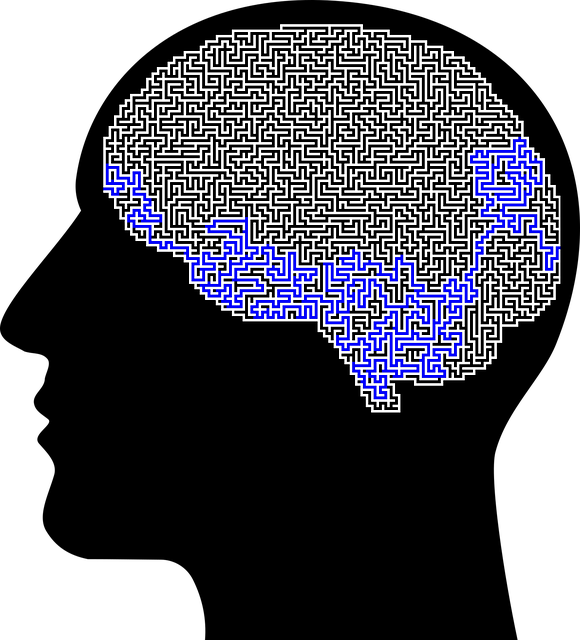Recognizing and addressing spiritual-religious crises in children is crucial for comprehensive crisis intervention. These crises, stemming from life changes, trauma, or faith struggles, manifest as anxiety, confusion, or social withdrawal. Effective assessment requires cultural sensitivity training for mental health professionals. Specialized therapy tailored to these issues demands burnout prevention strategies. Incorporating religious beliefs into therapeutic plans, through methods like narrative and art therapy, creates safe spaces for children to process spiritual challenges. Faith-based interventions, emphasizing interconnected physical, emotional, and spiritual well-being, enhance treatment effectiveness, improve coping mechanisms, and achieve better mental health outcomes, especially for underserved populations. Guided meditation, prayer, and nature connections foster resilience, mindfulness, and higher power connection, providing coping tools for emotional turmoil.
In today’s diverse world, crisis intervention strategies for spiritual-religious issues among children are paramount. This comprehensive guide explores effective approaches to address these complex challenges. We delve into recognizing and assessing spiritual crises, therapeutic techniques for healing trauma, integrating faith-based interventions, and fostering resilience through spiritual practices. By understanding the unique needs of children grappling with spiritual-religious issues, professionals can provide tailored therapy, offering hope and support for a brighter future.
- Recognizing and Assessing Spiritual-Religious Crisis in Children
- Therapeutic Approaches for Addressing Spiritual Trauma
- Integrating Faith-Based Interventions into Clinical Practice
- Supporting Children's Resiliency Through Spiritual Practices
Recognizing and Assessing Spiritual-Religious Crisis in Children

Recognizing a spiritual-religious crisis in children is an essential aspect of comprehensive crisis intervention. These crises can arise from various factors, including significant life changes, traumatic events, or struggles with faith and identity. Children may exhibit signs such as extreme anxiety, confusion, or even withdrawal from social activities when facing unresolved spiritual-religious issues. Assessing these crises requires a nuanced approach that considers the child’s cultural background and personal beliefs. Mental health professionals should be trained in cultural sensitivity to effectively navigate these complex situations.
Therapy for children addressing spiritual-religious issues is a specialized field, often requiring tailored interventions. Burnout prevention strategies for healthcare providers are particularly relevant here, as these crises can be emotionally taxing. Mental health awareness campaigns can play a vital role in educating both professionals and parents about recognizing the signs and providing support. Incorporating cultural sensitivity in mental healthcare practice ensures that children from diverse backgrounds receive appropriate care, fostering a safe space for them to process their spiritual struggles.
Therapeutic Approaches for Addressing Spiritual Trauma

Addressing spiritual trauma in children requires a nuanced and compassionate approach. Therapeutic interventions for this sensitive issue often involve integrating spiritual or religious beliefs into treatment plans, recognizing that faith can be a significant source of resilience and coping mechanisms. Therapists skilled in child psychology and spiritual care can facilitate safe spaces where children feel empowered to express their fears, doubts, and questions related to traumatic events or transitions. Techniques such as narrative therapy, art therapy, and mindfulness exercises tailored to the child’s specific religious or spiritual background can help process difficult emotions and restore a sense of inner peace.
The Mental Wellness Podcast Series Production offers valuable resources for professionals seeking guidance on integrating spiritual-religious issues into therapy for children. These podcasts often feature expert interviews and case studies that highlight effective therapeutic approaches, including social skills training within a spiritual context. By combining mental wellness coaching programs development with evidence-based practices, therapists can create personalized interventions that not only address the symptoms of spiritual trauma but also enhance overall mental wellness in children.
Integrating Faith-Based Interventions into Clinical Practice

Integrating faith-based interventions into clinical practice offers a promising approach to addressing spiritual-religious issues in therapy for children. Many families seek support from their religious communities, and incorporating these beliefs into mental health services can strengthen treatment effectiveness. Faith-based practices provide a unique perspective on healing, emphasizing the interconnectedness of physical, emotional, and spiritual well-being. This holistic view aligns with the growing recognition of the role that mental health education programs design play in comprehensive care.
By integrating faith-based interventions, therapists can tap into the protective factors offered by religious traditions, such as community support networks and positive coping strategies. For instance, Social Skills Training within a faith-infused context may include teaching children not only to navigate interpersonal interactions but also to do so from a place of spiritual resilience. Such an approach has potential benefits, including enhanced coping mechanisms, improved self-esteem, and better overall mental health outcomes, particularly for populations with limited access to traditional therapy services.
Supporting Children's Resiliency Through Spiritual Practices

In the realm of crisis intervention, especially when dealing with children experiencing emotional turmoil, incorporating spiritual practices offers a unique and profound approach to support their resiliency. Therapy for Children addressing spiritual-religious issues can be a game-changer in fostering inner strength development and boosting confidence. By encouraging reflection, mindfulness, and connection to a higher power or universal force, these practices provide young individuals with tools to navigate challenging situations and build resilience against potential depression prevention.
Guided meditation, prayer, or simply spending time in nature can help children tap into their spiritual well-being, fostering a sense of calm and purpose. Such activities not only offer coping mechanisms but also enhance their ability to cope with stress, thus strengthening their mental fortitude. This holistic approach acknowledges the interconnectedness of a child’s emotional, psychological, and spiritual health, ultimately contributing to their overall well-being and growth.
Crisis intervention strategies that incorporate spiritual and religious elements can significantly enhance therapy for children dealing with spiritual-religious issues. By recognizing and assessing spiritual crises, implementing therapeutic approaches tailored to address spiritual trauma, integrating faith-based interventions into clinical practice, and fostering resilience through spiritual practices, professionals can offer comprehensive support to vulnerable youth. These strategies not only promote healing but also strengthen the coping mechanisms of children, enabling them to navigate life’s challenges with renewed hope and purpose.








